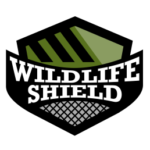You have probably come across raccoon feces in your property at some point. Most property owners don’t think a lot about the hazards of raccoon feces because they never touch raccoons. But as it turns out, you have probably come into contact with raccoon feces without even knowing. Most times, you come into contact with their droppings; nothing happens. However, the worst-case scenario can be fatal.
Therefore, whether it is a concealed latrine in your yard or attic, it is important to treat raccoon feces with caution. Raccoon feces transmits types of diseases, meaning you need to be extra careful when cleaning up raccoon droppings in your property. Make sure to call professional raccoon removal Mississauga services before you start cleaning up your attic.
The infectious diseases that are transmitted through raccoon feces can affect your family as well as your pets. In case you have young children alone at home, they are also high risk because they usually play outside and, on the ground, making them vulnerable to direct contact with raccoon feces and urine. Raccoons normally identify a spot where they will frequently defecate. The location of the latrines includes tree stumps, under decks garages, tree bases, and attics.
What diseases can be transmitted with raccoon feces?
Roundworms
Raccoons transmit roundworm eggs through their feces when they excrete. Roundworm eggs are very light when dried up; they become airborne. These eggs can get their way into your body when we inhale. Once the eggs have been swallowed through the breathing process, they hatch into larvae and spread to different parts of your body. It will take about a week for the roundworms to cause serious illness. Raccoon roundworms are very dangerous and can be fatal if left untreated. They normally affect the central nervous system, impairing organs. Severe consequences of raccoon roundworm infections can result in a coma or blindness.
Giardiasis
This infection can be transmitted by a variety of animals including raccoons. This organism is transmitted by raccoons through their feces. The organism contaminates soil, water, and surfaces that come into contact with infected raccoon feces. Humans can get infected by ingesting the feces.
Leptospirosis
This is a bacterial infection that is spread by raccoons through their urine and feces. This infection can be transmitted to both you and your pets. The disease can be contacted if you have an open wound that comes into direct contact with raccoon excrement.
Salmonella
Raccoon droppings are often positive for salmonella bacteria. You can contract this disease through incidental ingestion. This normally happens when humans unintentionally transfer micro-organisms from their hands to their mouth. These bacteria have the capability of staying dormant in a dry environment for extended periods before becoming fully active in favorable conditions.
How do I avoid getting in contact with raccoon feces?
- Avoid feeding raccoons
- Adopt good cleaning habits
- Use secure bins when food composting
- Discourage raccoons inside your property by using deterrents
- Avoid getting into contact with raccoon feces and safely clean up areas that raccoons have made a latrine
- Avoid direct contact with water, soil or vegetation contaminated with raccoon urine
What should I do if I get into contact with raccoon feces?
You will need to clean your hands thoroughly with hot running water and antibacterial soap. Monitor the symptoms of the illness in the future. In case you develop any symptoms, recalling that you came in contact with raccoon droppings may help narrow down your ailment.
If you come into contact with raccoon feces in your property, makes sure you clean it out with protective clothing, double bag it, burry or dispose of it for garbage collection. If you have discovered a big raccoon latrine and you are unsure what to do, contact your local wildlife removal service for assistance. Not properly cleaning your structures off raccoon droppings can lead to ulterior health risks.

